Leana Ratri Oktila won two gold medals at the Asian Para Games last week in Jakarta, blocking one three-repeat and aiding another.
By Don Hearn. Photos: Don Hearn / Badmintonphoto (archives)
Para-Badminton play wrapped up yesterday at the Asian Para Games in Jakarta. A total of 18 medal events were included, up from 15 in Incheon in 2014. However, the field was more competitive this time and while medals in four events in Incheon were decided by standings from round robin play, all but the women’s SU5 event in Jakarta went to a knockout round.
Three of the double gold medallists were actually not far off triples, in fact. Among these was Indonesia’s own Leana Ratri Oktila. Oktila had left with just one gold in Incheon, in mixed doubles. This time, her singles category, SL4, was separated from the SU5 category but she still had to concede the gold medal to China’s Cheng Hefang, though in three games.
The reversal of fortunes for Oktila came in the women’s doubles SL3 – SU5 category. She and young partner Khalimatus Sadiyah had been beaten by Cheng and Ma Huihui both in Incheon and in the semi-final of the World Para-Badminton Championships last year, both times in straight games. This time, however, the Indonesians got the better of the Chinese visitors and won the doubles final in straight games.
In mixed doubles, Leana Ratri Oktila repeated her gold medal performance from Incheon, only this time with her newer partner Hary Susanto (pictured top). Susanto, who won gold in men’s doubles in 2014 and 2010, thus became the only player to win gold at all three editions of the Asian Para Games. As for Oktila’s partner in her Incheon mixed gold performance, Fredy Setiawan (pictured above), he was involved in the closest two gold medal matches but could not repeat his double gold performance of 4 years ago. He and Dwiyoko beat Korea’s Jeon Sun Woo / Joo Dong Jae in a pair of 22-20 games but he dropped his deciding game to Tarun Tarun of Indonesia 19-21 to finish with one gold and one silver.
Ma Huihui was denied her own third consecutive gold medal edition, when she lost the gold medal match to the Indonesians in women’s doubles, and two other players also had their chances at a three-peat foiled this year. Cheah Liek Hou of Malaysia in the SU5 category perhaps suffered the biggest reversal. Not only was he going for gold in his third consecutive Asian Para Games, but he was the only double gold medallist in Guangzhou back in 2010 and he repeated that feat in Incheon, along with three others. Cheah had already been facing some stiff competition in recent years from Indonesia’s Suryo Nugroho, losing to him in a thrilling men’s doubles final in the Worlds last year. This year, Nugroho, playing with Oddie Kurnia Dwi Listiant Putra, came back from a game down to beat Cheah and partner Hairol Fozi Saaba in the semi-finals.
But Nugroho was again unable to taste Para Games gold. His obstacle in both singles and doubles came in the form of a young compatriot. Dheva Anrimusthi did even one better than his gold-silver performance at the Asian Youth Para Games last year. He was the one who beat defending champion Cheah in the semi-finals of the SU-5 singles event, then he prevailed over Nugroho in both finals to join Oktila as the other double gold medallist for the home team.
Thai wheelchair specialist Amnouy Wetwithan was the other player who had won gold both in Guangzhou and Incheon. After taking one gold and two silvers at the 2014 Games, her best performance this year was silver in women’s doubles, where she and Sujirat Pookkham lost in three games to Li Hongyan / Xu Tingting of China. Li Hongyan (pictured above) was the most successful women in wheelchair events this year, also winning women’s singles WH1 and taking silver in the combined wheelchair mixed doubles.
In the men’s wheelchair events, Chinese youngster Qu Zimo also won two golds, as did his mixed partner Liu Yutong. In addition to the mixed doubles, he and Mai Jianpeng (pictured right) also managed to prevail over last year’s Para-Badminton Player of the Year Kim Jung Jun. Kim, who won a total of 12 titles in 2017, managed only one gold medal in Jakarta, in men’s singles WH2. He and Lee Dong Seop went down in three games to Qu and Mai.
Qu Zimo was not far off being a triple gold medallist. Like Leana Ratri Oktila and Li Hongyan, even in his only silver medal performance, he won the first game of the final. in Qu’s case, he was in men’s singles WH1 against Choi Jung Man (pictured left). Choi, who was the only wheelchair double gold medallist in Incheon 4 years ago, had already lost to Qu and Mai in the men’s doubles semi-final on Thursday. After dropping the opener against his young Chinese opponent in the first match on finals day, Choi took back the advantage and evened the score, then took the decider convincingly.
By far the longest gold medal match pitted Indonesia’s Ukun Rukaendi, another of the Incheon double gold medallists, against Pramod Bhagat of India. After winning his semi-final in 72 minutes over Pramod’s compatriot Manoj Sarkar on Friday, Rukaendi took Pramod to 3 games and only conceded defeat after 84 gruelling minutes. India ended up with 3 gold medals in total, as Tarun Tarun also won the SL4 gold and Parul Dalsukhbhai Parmar took gold in the women’s SL3 division.
Click here for complete results
![Oktila wins 2 Para Games golds, Susanto wins 3rd straight Leana Ratri Oktila won two gold medals at the Asian Para Games last week in Jakarta, blocking one three-repeat and aiding another. By Don Hearn. Photos: Don Hearn / Badmintonphoto […]](http://www.badzine.net/wp-content/uploads/ngg_featured/Susanto-Oktila_rotator.jpg)
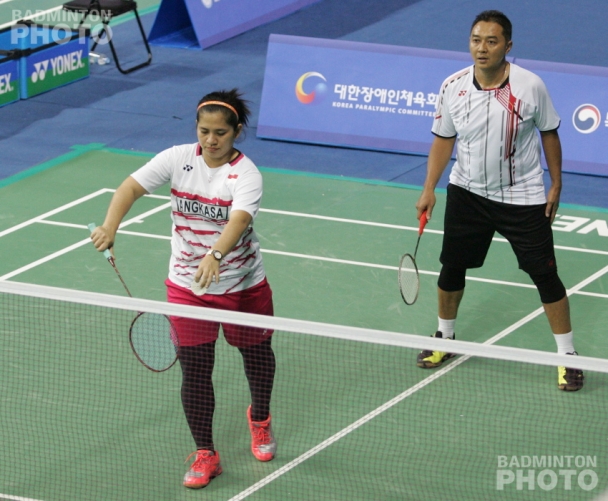
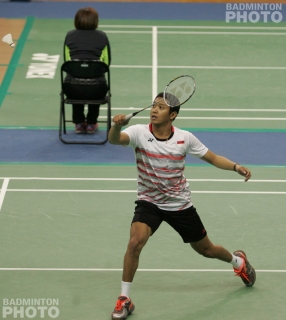
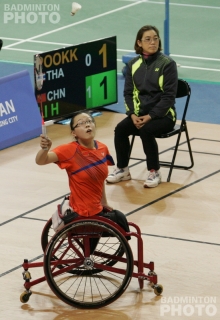
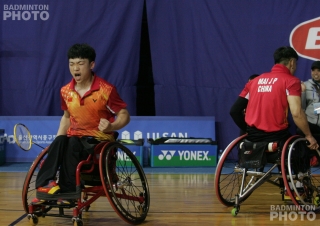
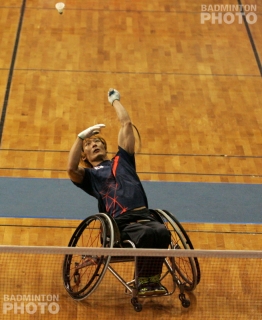

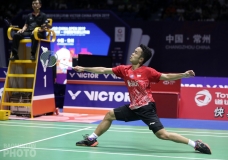
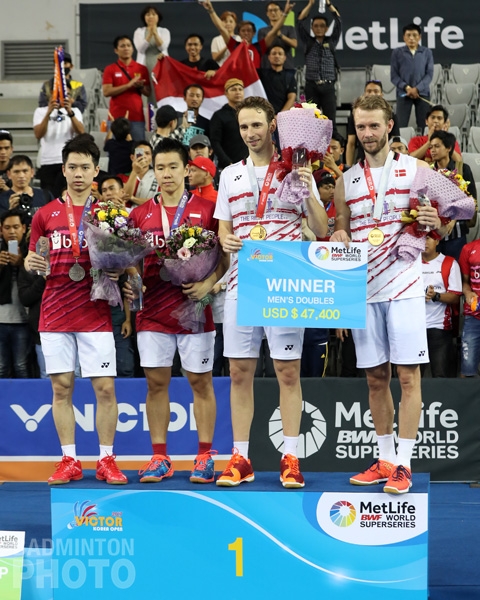
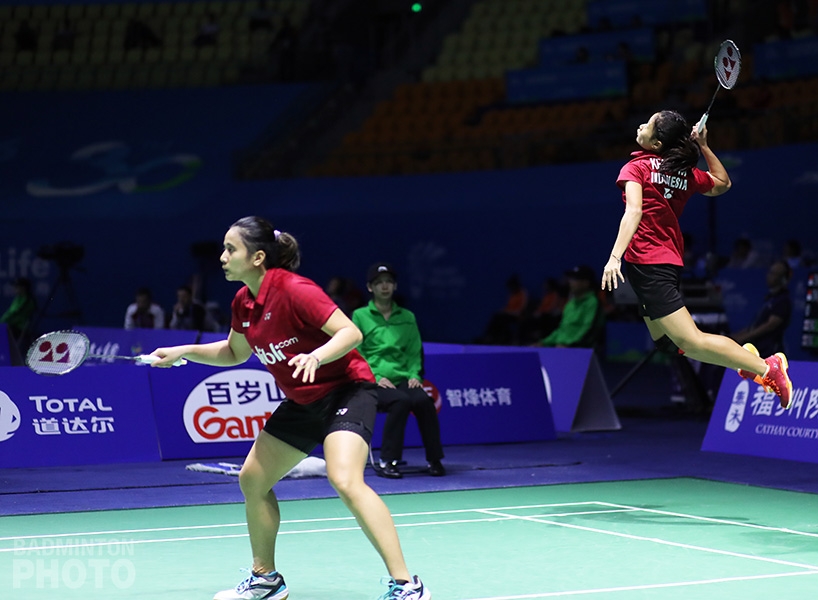
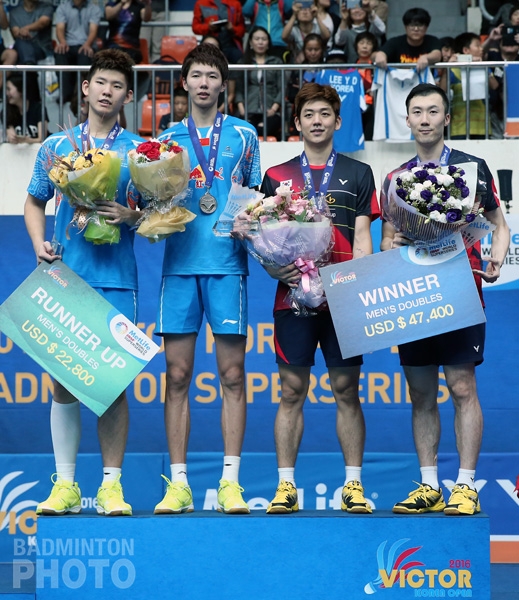
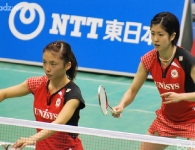

Oktila/Sukohandoko lost in the semis of WD SL3-SU5 to Cheng/Ma in Ulsan 2017.
Thank you very much for pointing out the error. It has now been corrected.